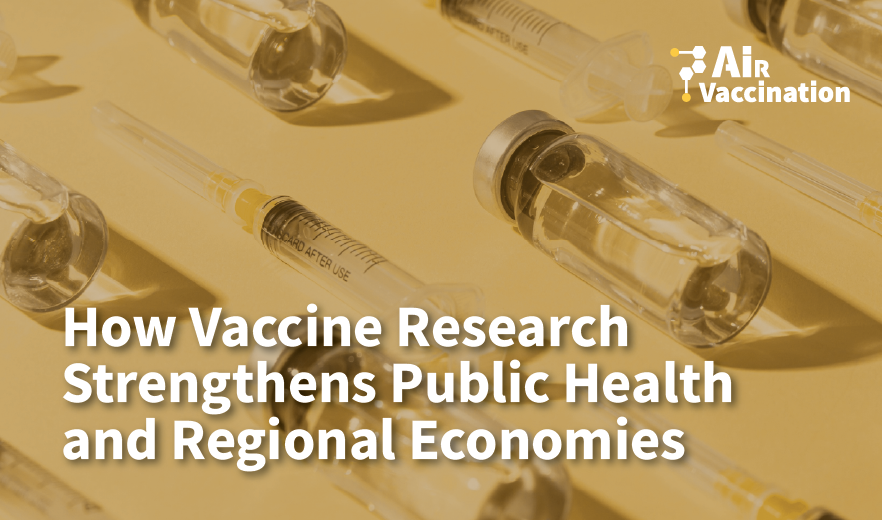How Vaccine Research Strengthens Public Health and Regional Economies
The development of vaccines has always been one of humanity’s most powerful tools to protect lives. Yet, beyond their clear medical importance, vaccine research also generates economic and social value — creating jobs, fostering innovation, and strengthening entire regions.
Projects like Vaccination, led by the AIR Institute in Castilla y León, exemplify how scientific research can become a driver of both health progress and economic growth.

Health as a foundation for progress
Vaccines save millions of lives each year, preventing the spread of infectious diseases and reducing the burden on healthcare systems. But the impact goes further:
- Stronger public health means higher productivity and fewer disruptions in education and work.
- Effective vaccination programs contribute to social stability and long-term well-being.
- Faster responses to emerging threats reduce the human and economic cost of future pandemics.
Scientific advances like those achieved through AI-driven vaccine research make these benefits even greater, enabling smarter, faster, and more precise immunization strategies.
Innovation as an economic engine
Vaccine research does not only improve health outcomes — it also drives regional innovation ecosystems.
- It attracts scientific talent and fosters collaboration between universities, startups, and research centers.
- It encourages investment in high-tech infrastructure, such as laboratories and computing facilities.
- It generates qualified employment and positions regions as international references in biotechnology.
For Castilla y León, initiatives like Vaccination place the region at the crossroads of science, technology, and development, turning knowledge into economic opportunity.
The role of AI in accelerating impact
By integrating Artificial Intelligence, Deep Learning, and High-Performance Computing, projects such as Vaccination reduce time and cost in vaccine design while improving efficiency. This translates into:
- Faster innovation cycles, allowing new discoveries to reach the market sooner.
- Sustainable models that optimize resources and minimize environmental impact.
- Collaborative opportunities that strengthen the regional research fabric.
AI is not replacing scientists — it is empowering them to achieve breakthroughs that benefit both health and the economy.
A vision for the future
The connection between vaccine research, public health, and economic development is clear: investing in science means investing in people.
The AIR Institute’s Vaccination project shows that regions like Castilla y León can lead the way in combining technological innovation with social responsibility, shaping a future where well-being and economic prosperity grow together. Because every step forward in vaccine research is also a step toward a healthier, more resilient, and more prosperous society.